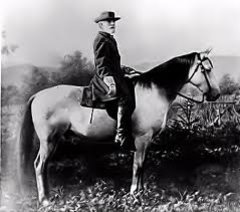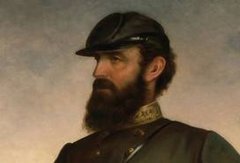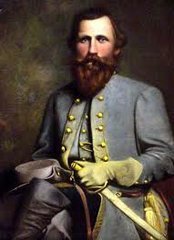Three Men and a Horse
 Yes, that is Robert E. Lee and the horse is Traveler. Don’t be concerned, this is not a story about
Yes, that is Robert E. Lee and the horse is Traveler. Don’t be concerned, this is not a story about
the American Civil War. The war plays
into it but only as backstory.
War is the manifestation of political failure. There are no exceptions. I always believed that, and then I went to
Vietnam and proved it. No matter what
you believe about war, you can know that I’ll never glamorize it. On the other hand, war is the essence of the
history of mankind, on the planet so there is no way I can ignore it.
I said all that to let you know this, this blog post is not
about the “glamor of war.” There is no
such thing. This story is about three
men and a horse who were drawn together by a war, and who shared a personal
trait that everyone who strives to succeed must have.
Robert E. Lee, a career army officer, engineer, and West
Point graduate, was offered the command of the Union Army. When Virginia, his home state, ceded from the
United States, Lee declined the offer and accepted Jefferson Davis’ offer of
the command of the Confederate Army. Lee
received both of those command offers because he was known to be a man of
impeccable character and integrity. A
man you could depend on.
General Lee had a string of four horses. The last horse added to the string was a two
year-old gelding named Traveler, the youngest of the General’s horses. On one of the first days that Lee rode
Traveler into battle, the horse, spooked by the noise of shells exploding and
muskets firing, reared and threw the General who landed with all of his weight
on his hands. For the next two weeks,
Lee’s wrists were so sore they were bandaged, and he couldn’t hold a horse’s
reins. His groom suggested that Traveler
be reassigned to the cavalry but Lee said no.
The next day, with assistance, the General mounted Traveler and rode
into another battle. This time the great
horse didn’t so much as quiver as he moved in the direction and at the speed the
General indicated with only soft verbal commands and knee pressure.
From that day, Traveler was the General’s number one horse. Soldiers reported that the most reassuring
sight they saw during a battle was a glimpse of Traveler and General Lee coming
steadily through the chaos and ear splitting noise. Wounded four times, Traveler took the General
home after the war, retired with him, and outlived the Confederate Commander by
four years.
Thomas Johnathan
Jackson, a graduate of West Point, was a mediocre professor at Virginia Military Institute,
when Robert E. Lee invited him to join the Confederate Army as a division
invited him to join the Confederate Army as a division
commander. There was nothing in Jackson’s
history that justified the offer.
However, Lee had a keen insight into the character of men, and he saw
something in Jackson that wasn’t reflected in his history. Outnumbered by a better equipped force in his
first major battle with the Union Army, Jackson rallied his troops by standing
firm on the most dangerous spot on the battlefield. A junior officer reported later, “Me and my men
were ready to run when I looked through the smoke and haze of the battle and
saw General Jackson, facing the enemy and standing like a stone wall.” From that day until his last, General Jackson
was simply known as “Stonewall.”
 James Ewell Brown Stuart, better known as JEB Stuart, had
James Ewell Brown Stuart, better known as JEB Stuart, had
the well-earned reputation of a light-hearted, flamboyant, playboy. General Pickett’s wife, in her journal,
described him as a “banjo player.” Like
Stonewall, there was nothing in his background, beyond his West Point training,
that qualified him to be a cavalry General, yet that’s exactly what Robert E.
Lee asked him to be. JEB accepted
without hesitation, sending reports and dispatches to Lee that the commander
knew he could count on. In fact, the
closing line on every document Stuart sent to Lee was simply, “Yours to count
on.”
It is reliably reported that Robert E. Lee was only seen to
cry on two occasions during the entire war.
The first was upon learning of the death of General JEB Stuart, and the
second when he was told that General Stonewall Jackson had been killed.
Jackson, Stuart, and Traveler, had a trait in common. They could be counted on. No matter how hopeless a situation they found
themselves in, they never stumbled or faltered.
If we intend to achieve our objectives, no matter what they are, we must
share that level of commitment and resolve.
A number of years ago AT&T aired a radio commercial that
expressed that sentiment perfectly. In
an assured tone a man stated positively, “If you leave a message for me, and I
don’t get back to you, you can be sure that I’m dead.”
“Yours to count on,” is a commitment. It is a commitment to self. Beyond that it’s a commitment to a task, an
ideal, or to another person or group of people.
But first and foremost it is a commitment to self. When you make that commitment and honor it,
everything else falls into place.



